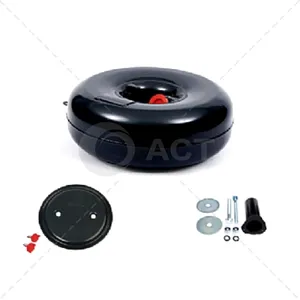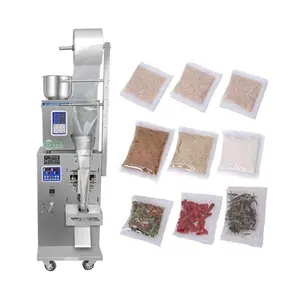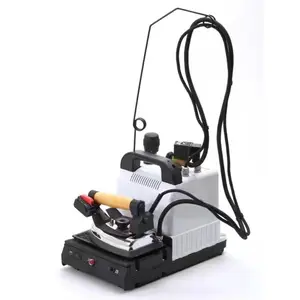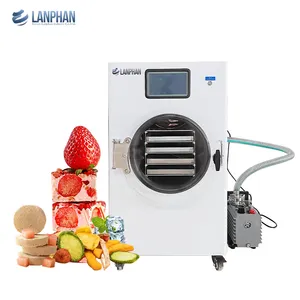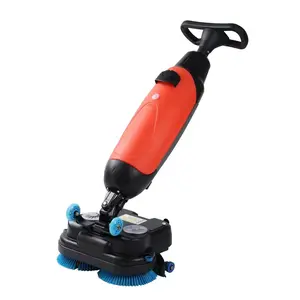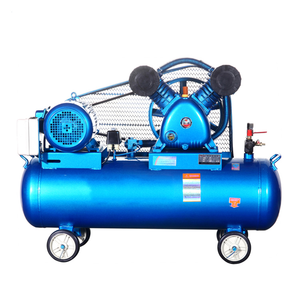Popular in your industry












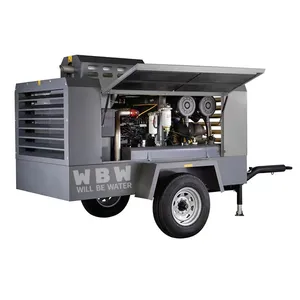























































Related Searches:






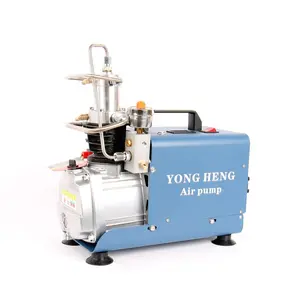









































































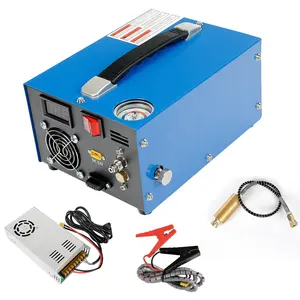

































Top categories
About 3000 psi air compressor
Understanding High-Pressure Air Compressors
High-pressure air compressors are sophisticated machines engineered to transform vast quantities of atmospheric air into a condensed, transportable, and adaptable power source. These compressors play a pivotal role in a myriad of industries that demand pure, high-pressure air beyond atmospheric offerings. They are prevalent in manufacturing facilities, construction sites, and even residential settings for tasks necessitating intense air pressure.
The workings of a high-pressure air compressor are deceptively simple. It ingests copious amounts of air, purifies it, and then compresses it within an airtight compartment, yielding a reduced volume at a substantially elevated pressure. This is typically accomplished through multiple stages, with each incrementally boosting the air pressure to the required magnitude. The compressor is powered by a motor that activates a mechanism to methodically and incrementally contract the air volume, thus amplifying its pressure with each pass.
These units are tailored for professionals in need of a compact, dependable high-pressure air source, which is indispensable in a range of uses from driving pneumatic tools to providing breathable air in safety equipment. High-pressure air compressors offer capabilities that their low-pressure counterparts cannot, enhancing efficiency and functionality in activities such as construction, manufacturing, and leisure pursuits like scuba diving or paintball.
Varieties of High-Pressure Air Compressors
Diverse types of high-pressure air compressors are available to meet varying requirements and applications. Some examples include:
-
Reciprocating Piston Compressors: Commonly found in workshops and smaller industrial environments, these compressors utilize a piston within a cylinder to intake and compress air in either a single or multi-stage process. Known for their durability, reciprocating compressors are well-suited for sustained use.
-
Rotary Screw Compressors: Used in midsize to large industrial operations, rotary screw compressors employ a pair of meshing helical rotors within a chamber to compress air. Their unique rotor design ensures a high level of efficiency in power-to-pressure conversion.
-
Centrifugal Compressors: While less widespread, these are used when substantial volumes of high-pressure air are needed. They accelerate air using impellers and then channel it into a diffuser, where kinetic energy is transformed into static pressure.
-
Scroll Compressors: A more recent innovation, scroll compressors compress air using spiral-shaped scrolls rather than pistons. They are recognized for their quiet operation and are often chosen for smaller-scale applications or when lower maintenance and higher efficiency are priorities.
-
Axial Compressors: In axial flow compressors, air moves parallel to the shaft. They are rarer but are employed in specialized applications where they provide benefits over other types.
Selecting a High-Pressure Air Compressor
Choosing the appropriate high-pressure air compressor is vital for achieving peak performance and efficiency in your enterprise. Consider the following:
-
Intended Use: Ascertain the primary function of the compressor—whether for manufacturing, construction, or equipment maintenance. This will guide your selection of the appropriate model.
-
Power Source: Decide between an AC-powered unit, which is standard for fixed installations, or a DC-powered alternative for portability, albeit with potentially reduced pressure capabilities.
-
Pressure Requirements: Evaluate both the compressor's maximum pressure rating and your specific demands. The intensity of the pressure needed for heavy-duty industrial tasks or moderate usage will influence your decision.
-
Lubrication Style: Choose between lubricated and oil-free models based on your maintenance capacity and the feasibility of managing an oil-dependent compressor.
-
After-Sales Service: Confirm that the vendor offers comprehensive after-sales support, including online assistance or the availability of engineers for international machinery servicing.
By considering these elements, companies can make well-informed choices when acquiring a high-pressure air compressor that aligns with their operational needs and fiscal constraints.
High-Pressure Air Compressors on Alibaba.com
For firms in search of reliable high-pressure air compressors, Alibaba.com emerges as a premier marketplace, linking buyers with a vast network of global suppliers. The platform showcases an extensive selection of high-pressure air compressors suitable for a wide array of industrial uses, from construction to manufacturing, addressing the diverse needs of various sectors.
Alibaba.com streamlines the procurement process by offering detailed product specifications and supplier information, enabling purchasers to make decisions that are tailored to their unique requirements. The platform's dedication to promoting international commerce is evident in its user-friendly mobile purchasing options and multilingual communication tools, simplifying transactions across borders.
Furthermore, Alibaba's Trade Assurance program highlights its commitment to customer satisfaction by safeguarding payments until delivery confirmation. This assurance allows businesses to have confidence in the quality and dependability of their acquisitions while benefiting from competitive prices and bespoke solutions that serve both large-scale enterprises and specialized market niches.
Frequently Asked Questions About High-Pressure Air Compressors
What distinguishes a single-stage air compressor from a two-stage one?
A single-stage air compressor achieves compression up to 125 PSIG in one step, whereas a two-stage compressor can reach up to 300 PSIG across multiple stages. Two-stage compressors are generally reserved for applications requiring higher pressures.
How can I ascertain the correct air compressor size for my business?
The appropriate size for an air compressor is contingent on the required air flow rate and pressure for your specific application. It's crucial to calculate these figures based on your operational demands.
Are there portable high-pressure air compressors suitable for industrial use?
Indeed, portable high-pressure air compressors exist and are perfectly suited for mobile applications such as field services, construction, or agriculture.
What maintenance considerations should I keep in mind when purchasing a high-pressure air compressor?
Consider the availability of after-sales services like online or video technical support, spare parts, and the supplier's policies on maintenance and repairs.
Can high-pressure air compressors be employed in all industrial scenarios?
High-pressure air compressors are versatile for a broad spectrum of industrial applications, but selection should be based on the specific pressure demands of your operations.
What are the power source options for high-pressure air compressors?
High-pressure air compressors can be powered by various sources such as AC, DC, or engine power, depending on the model and its intended application.
Which core components are critical in the construction of a high-pressure air compressor?
Essential components like the air end, pressure vessel, valves, and cooling system are vital. The caliber of these parts guarantees the compressor's dependability and efficacy under high-pressure conditions.
How do I ensure compatibility of the high-pressure air compressor with my existing system?
Verify the supplier's specifications to ensure compatibility with your system, paying attention to crucial aspects like voltage, frequency, and cooling method to match your existing setup.
Is customization available for high-pressure air compressors to meet specific industrial requirements?
Many suppliers provide custom solutions. Engage with suppliers to discuss your particular needs and obtain a compressor that fulfills your operational requirements.
What after-sales services should I seek when purchasing a high-pressure air compressor?
Seek suppliers who offer extensive after-sales services, including online support, video technical assistance, and engineers who can service machinery internationally. This guarantees continued support and help with operation and upkeep.
How significant is the lubrication style when selecting a high-pressure air compressor?
The lubrication style is a key factor in ensuring the longevity and efficiency of your compressor. Opt for oil-free or lubricated models based on the needs of your application.
Is it possible to operate high-pressure air compressors at reduced pressures?
Certain models are capable of operating at lower pressures, but it is critical to adhere to the manufacturer's guidelines as operating below the recommended pressure can compromise the compressor's performance and potentially cause damage.
What impact does the material of the high-pressure air compressor have on its performance?
The material of the compressor influences its robustness, weight, and maintenance requirements. Stainless steel compressors are sturdy and resistant to corrosion, making them ideal for challenging environments.
Are there special installation considerations for a high-pressure air compressor in my facility?
Installation considerations may include a stable foundation to support the compressor's operation, adequate ventilation for cooling systems, and a sufficient power supply to meet the unit's energy demands.
How can I determine if a high-pressure air compressor is energy-efficient?
Seek compressors with energy-efficient motors and those that provide energy ratings or air consumption profiles. Suppliers may offer this information or reference industry standards such as IE3 or IE4 ratings.
What does 'mute' operation mean for high-pressure air compressors?
'Mute' operation refers to a compressor's ability to run at reduced noise levels. This is particularly relevant in settings where excessive noise is disruptive or where noise control is mandated for health and safety.
How does the cooling method affect the performance of a high-pressure air compressor?
The cooling method, whether air or water-based, impacts the compressor's efficiency and its ability to manage temperature. Water cooling typically allows for steadier operation at elevated pressures.
Why is a machinery test report important for a high-pressure air compressor?
A machinery test report verifies that the compressor has undergone and passed tests confirming it meets certain quality and performance benchmarks. It acts as a guarantee of quality and performance prior to purchase.
